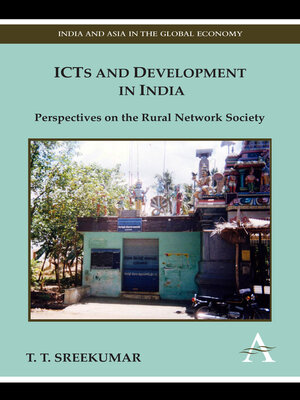ICTs and Development in India
ebook ∣ Perspectives on the Rural Network Society · India and Asia in the Global Economy
By T. T. Sreekumar

Sign up to save your library
With an OverDrive account, you can save your favorite libraries for at-a-glance information about availability. Find out more about OverDrive accounts.
Find this title in Libby, the library reading app by OverDrive.



Search for a digital library with this title
Title found at these libraries:
| Library Name | Distance |
|---|---|
| Loading... |
'ICTs and Development in India' is a unique attempt to study the nature and consequences of the growing presence of Information Technology in development projects in India, focusing particularly on E-governance and Information & Communication Technologies (ICT) development programs initiated by Civil Society Organizations (CSOs). Sreekumar persuasively argues that there is in fact a wide chasm between the expectations and the actual benefits of CSO initiatives in rural India, and that recognising this crucial fact yields important lessons in conceptualizing development and social action in rural areas.
|'ICTs and Development in India' provides a critical account of the impact of the use of Information Technology in development projects in India, focusing particularly on E-governance and Information & Communication Technologies (ICT) development programs initiated by Civil Society Organizations (CSOs). Sreekumar challenges the conventional wisdom concerning the potential of ICT to provide unprecedented social and economic opportunities for vulnerable groups such as women and marginalized communities by highlighting its failure to bridge social divides. He argues that in addition to reinforcing existing social divides, the patterns of ICT deployment and control have in certain cases created new divides. Given such tensions and contradictions, this book questions whether it is appropriate to consider civil society as an independent realm of social action separated from State and Market.
Sreekumar offers a fresh perspective and added depth to the discussions on the social impacts of new technologies in rural areas, especially in terms of methods, analytics and approach. The recognition of the shortcomings of CSO initiatives plays an important part in redefining the role of civil society and understanding its fractured relations with the State and Market. Sreekumar therefore creates a powerful critique on the interpretation of agency and the structure of rural transformation as mediated by new technologies in the particular context of India's social and economic transition.







